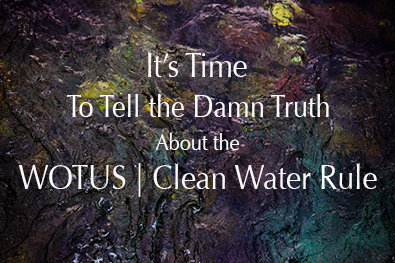 To say that the Montana Wild story has touched many a nerve in the fly fishing and hunting communities would be the understatement of the month.
To say that the Montana Wild story has touched many a nerve in the fly fishing and hunting communities would be the understatement of the month.
There’s been spirited coverage and conversation on several regional news portals and several observant fishers in our circle continue to note reams of (mostly unflattering) responses when Montana Wild has peeked out from behind the social media curtain this week.
If One Tenth of This is True…
My inbox has been pummeled with further spins, stories, opinions, and additional alleged accounts of Montana Wild’s “adventures” in the northern Rockies; to the letter every one alleging further, ah, potential bending and stretching of ethical bounds.
Note the very intentional use of the adjective alleged.
It’s easy to pile on when the mob is rushing out to hang somebody in town square, so these accounts anecdotes tall tales narratives may just be the modern equivalent of joining the mob headed to the hanging tree. On the other hand, the accounts may just reflect symptoms of a markedly deeper problem.
If even one tenth of the additional accounts have any basis in fact, there are a bevy of sponsors out there that have some serious thinking to do. And you’re one of the ‘truth tellers’ who have a story to tell, PLEASE give one of their big sponsors a ring and share your news.
For the record, we’re not posting hearsay accounts as fact; get your own damn portal and do it.
Just for the Record, Hearsay means…
Much of what we’re hearing (and you if you’re watching this story) probably falls into the category of hearsay. From the Legal Information Institute at Cornell Law–
Generally, an out-of-court statement is hearsay if the parties care about whether or not the statement is true. For the purposes of the rule, it does not matter whether the statement was oral or written. Generally speaking, hearsay cannot be used as evidence at trial…
…In general, the hearsay rule is motivated by a belief that hearsay is unreliable. There are exceptions to the rule for for particularly reliable statements, and where allowing the evidence advances public policy goals. For example, under Rule 801(d) of the Federal Rules of Evidence, a witness’s prior inconsistent statements are not hearsay, due to the public policy goal of avoiding perjury. Similarly, Rule 803(6) of the Federal Rules of Evidence makes an exception to the hearsay rule for business records, because businesses have incentives to keep accurate records…
The Damning Side of Social Media
Just this morning I was chatting with a media professional and he made this comment –
Social media and media in general are the worst things and best things that’ve happened to (fly) fishing in a long time…
To which I replied –
Ain’t that the truth. I’m feeling a bit cynical this morning reading news, so I’d lean to the worst thing side more than anything else. You used to have build real relationships, invest some sweat equity and earn trust to learn about special places…..
I’d heartily agree with those who ponder that social media can, and does often, drive exploitation of fragile wilderness and river systems, pushes mishandling of fish to get that perfect pic or clip, and often misrepresents the true nature of the fly fishing (and hunting) experience – life in the outdoors isn’t all non-stop, slam-bam action set to a pulsing, overused, techno-rock soundtrack.
Claims of Montana Wild’s mishandling fish to get the ‘perfect clip’ will likely forever be the poster-child of egregiously shitty behavior in the outdoor media world, whether it actually happened or not (their denial remains steadfast so far).
Of course, in skilled and thoughtful hands, outdoor media (any media for that matter) can be a wonderful tool we all enjoy and deeply appreciate too. Striking that balance will be an increasingly delicate dance after the MW story, and Montana Wild has probably changed the game a bit for everyone to come.
What say ye?

